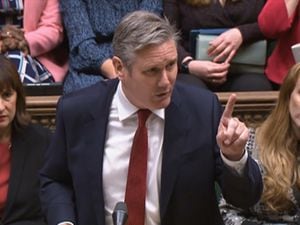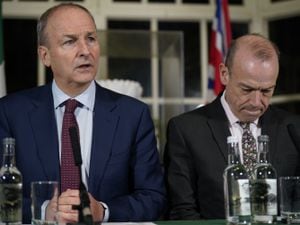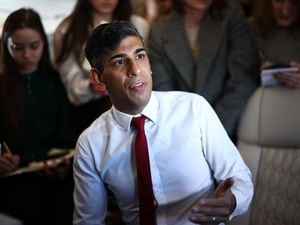Starmer warns Tory MPs they will not be forgiven for backing ‘kamikaze’ budget
Sir Keir, in his remarks at Prime Minister’s Questions, asked: ‘Who voted for this? Not homeowners paying an extra £500 on their mortgages.’

Voters will not forgive the Conservative Party if it continues to “defend” the madness of Liz Truss’s “kamikaze” mini-budget, according to Sir Keir Starmer.
The Labour leader issued the warning to Tory MPs as he accused the Prime Minister of being “lost in denial” and “ducking responsibility” for the consequences of her Government’s economic policies.
Ms Truss said the UK will see “higher growth and lower inflation” as a result of her plan and insisted she will stick to her pledge not to reduce public spending.
She also said Sir Keir has undergone a “Damascene conversion” to support legislation to repeal a hike in national insurance, although Labour – under his leadership – opposed the increase in the first place.
Chancellor Kwasi Kwarteng has been under pressure for the market turmoil that erupted after the Government last month announced a £45 billion package of unfunded tax cuts alongside a commitment to cap energy bills for the next two years.
Mr Kwarteng later dropped plans to abolish the 45% tax rate on earnings over £150,000, although he remains committed to the rest of his mini-budget.
Sir Keir, in his concluding remarks at Prime Minister’s Questions, asked: “Who voted for this? Not homeowners paying an extra £500 on their mortgages.
“Who voted for this? Not working people paying for tax cuts to the largest companies.
“Who voted for this? Not even most of the MPs behind her who know you can’t pay for tax cuts on the never-never.
“Does she think the public will ever forgive the Conservative Party if they keep on defending this madness and go ahead with her kamikaze budget?”

Ms Truss replied: “What our budget has delivered is security for families for the next two winters. It’s made sure that we’re going to see higher economic growth, lower inflation and more opportunities.
“The way we will get our country growing is through more jobs, more growth, more opportunities – not through higher taxes, higher spending and his friends in the unions stopping hard-working people getting to work.”
Sir Keir earlier accused the Conservatives of going on a “borrowing spree”, adding: “For nearly two million homeowners, their fixed-rate deals are coming to an end next year. They’re worried sick and everybody in this House knows it.
“They won’t forgive, they won’t forget, and nor should they.
“When will she stop ducking responsibility, do the right thing and reverse her kamikaze budget which is causing so much pain?”
Ms Truss said she was “genuinely unclear”, prompting jeers from the Labour benches, before adding: “As to what the Labour Party’s policy is on our energy price guarantee.
“It was the biggest part of our mini-budget. Are the Opposition saying they want to reverse it and they want to see people facing energy bills of £6,000?”
On public spending, Sir Keir noted: “During her leadership contest, the Prime Minister said, I quote her exactly, ‘I’m very clear, I’m not planning public spending reductions’. Is she going to stick to that?”
Ms Truss replied: “Absolutely. Look, Mr Speaker, we’re spending almost £1 trillion on public spending. We were spending £700 billion back in 2010. What we will make sure is that over the medium term the debt is falling. We will do that not by cutting public spending but by making sure we spend public money well.
“And (Sir Keir) talks about our spending, which he doesn’t seem to support, on the energy price guarantee. But the reality is he can’t criticise us on one hand for spending money and on the other claiming we’re cutting public expenditure.”





